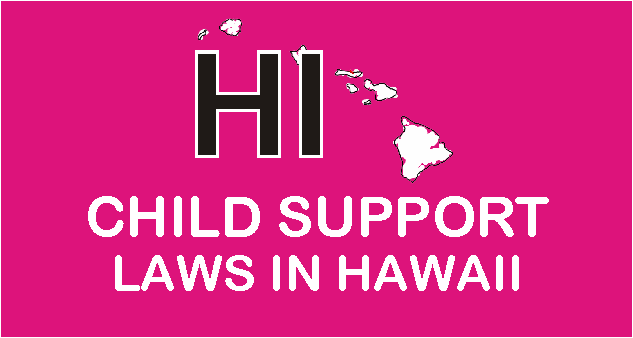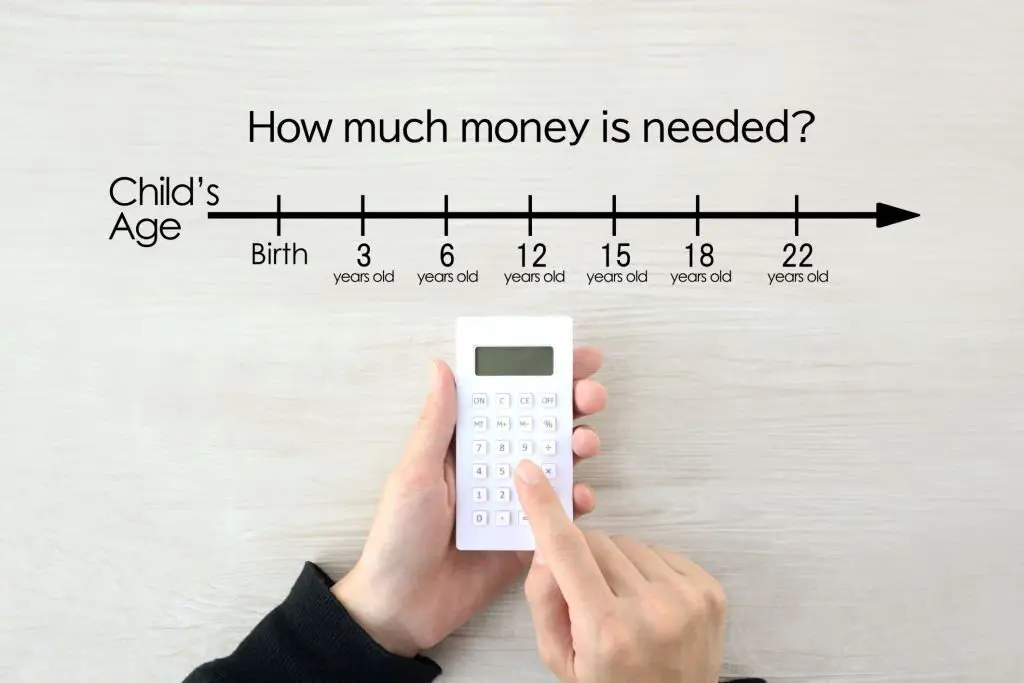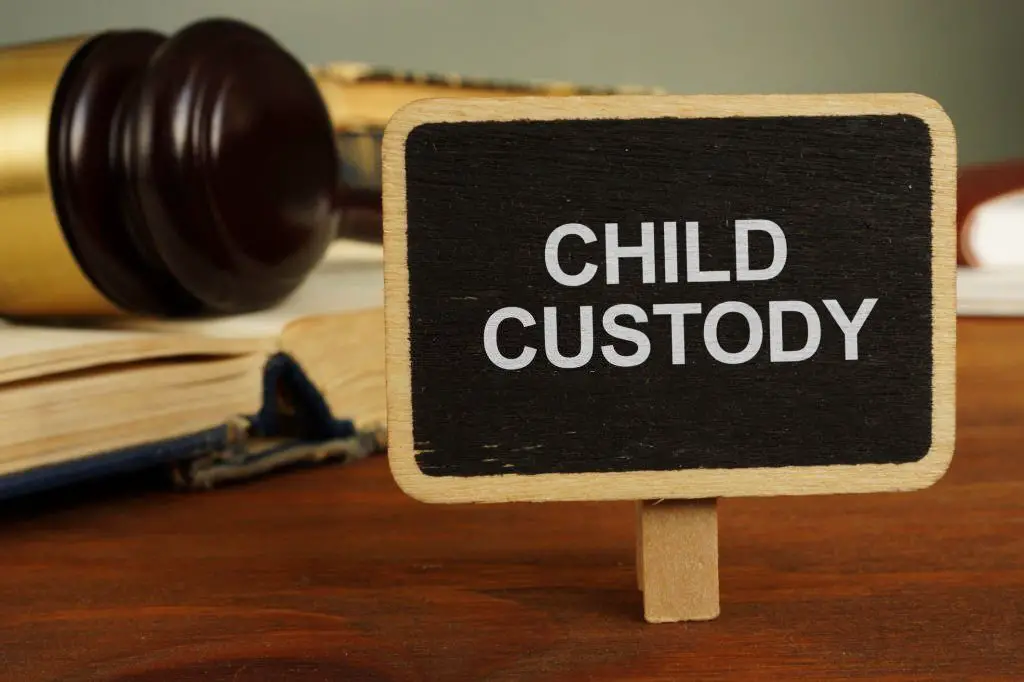
The laws governing child support in Hawaii are different from that of other states. HI child support law sets how much the child maintenance should be, and the duration of such payments, plus it seeks to guide parents in exceptional cases such as deviation, support for disabled children, and retroactive support.
As you may already know, child support (or child maintenance) is a continuous monetary payment made by a spouse to another spouse, guardian, caregiver, or the state for the upkeep of children after a divorce or separation.
The person who is required to pay child support is referred to as the “obligor,” whereas the person who is eligible to receive child maintenance is referred to as the “obligee.”
What are HI Child Support Laws?
Hawaii Child support law is predicated on the idea that, even if a child does not live with both parents, they should both be expected to provide for their financial needs. Monthly maintenance and support, educational assistance, and health insurance may all be included in child support payments.
According to Hawaii law, the formula used to determine child support payments directly takes into consideration the shared custody of a kid. In situations where there is joint custody, this means that the amount of child support payable by the paying parent will be adjusted based on how much time they spend with the kid.
What does Child Support Cover in Hawaii?
Generally speaking, child support must pay for all of a kid’s essential requirements, including clothing, food, and housing. Additionally, it is typically believed to cover regular child-related costs such as school-related activities, supplies, and related costs.
However, there is no legal requirement that child support pays for tuition at a private school. Parents who are worried about paying for private education would need to come up with other solutions to pay for these expenses. If the final agreement does not fall below the minimum standard amount specified by the statutes, parents who can afford it may agree to vary.
Child Support When One Parent Lives Outside Hawaii
To enforce child support orders beyond state boundaries, each state has to have the Uniform Interstate Family Support Act (UIFSA) in place. Hawaii is no exception.
The UIFSA ensures that child support processes and procedures are consistent across states. When one spouse lives in another state where the Hawaii courts do not have authority to adjudicate or enforce orders, UIFSA reduces these bottlenecks.
If you reside in Hawaii and then the other parent resides in a different part of the country, you must get in touch with the island-based office of the Hawaii Child Support Enforcement Agency. You can contact the Hawaii Child Support Enforcement Agency (CSEA) by phone, by letter, or in person at one of its branch offices.
How is Child Maintenance Calculated In Hawaii?

Learn How Child Maintenance Calculated In Hawaii
To calculate child maintenance, Hawaii uses the Income Shares Model which is based on the idea that the child ought to have the same amount of assistance that they would have, whether or not the parents are still married and cohabitating or not. This can be calculated using the Hawaii Child Support Calculator or Child Support Worksheet.
Hawaii bases child support on how many overnight visits there were. It bases shared custody timeshare % calculations on overnights or the location where the children sleep in addition to income as a crucial component.
You can use the guidelines to calculate the total amount of child support owed once you have established the net incomes of both parents and the custody arrangements. Here are the steps:
Step 1: Determine the gross income of both parents. This includes regular income from all sources.
Step 2: Determine the net income of both parents by deducting any spousal support, child support already paid, social security, and state and federal income taxes from gross income. You might be eligible for further deductions.
Step 3: Understand the custody arrangement:
- Joint custody formula – If the parents split custody equally,
- Sole custody formula – child stays with the noncustodial parent between 143 and 183 nights a year.
- Divided custody – the parents divide the children between them, for example, the mom takes the older child while the dad has the younger child.
Gross Income Included in Calculating Child Maintenance
For child support calculation purposes, gross income includes:
- all wages and salary, including commissions, military pay, tips, overtime, and bonuses
- self-employment income
- interest and dividends
- net rental income from property the parent owns
- military special pay and allowances
- spousal support received
Even jobless parents are likely to have some sources of income, like:
- severance pay
- unemployment benefits
- retirement benefits
- veterans’ benefits
- disability benefits, or
- workers’ compensation awards.
A HI family court judge may also allocate an income value to parents who do not currently have income-earning employment (like a second house). If a jobless parent inherits assets that can be sold, for instance, the judge may include the property’s market value as a part of such parent’s income.
Where parents willfully go unemployed or underemployed in order to avoid paying child support, judges may infer (assign) income based on what they are supposed to be earning.
Net Income for HI Guidelines

How to determine Net Income for HI child support
Remove the following costs from the total gross income to get the parent’s net income for paying child support in Hawaii:
- Social Security taxes, or any mandated retirement plan contributions if the parent does not pay those taxes.
- Income taxes, both federal and state (based on the tax rate for a single person claiming one exemption)
- union dues
- The HI court has ruled the parent to pay the child’s health and dental insurance premiums, as well as additional medical bills.
Parents who have already paid child support for another kid or children (from a previous relationship) may be eligible for a refund.
Hawaii Child Support Calculator or Worksheet
While a child support calculator can be used to estimate child support, it is not a guarantee of the final amount of child maintenance that the judge will order. A child support worksheet is a form used by the HI courts (or negotiating spouses) to approximate the basic child support obligation of the parents.
Regardless of which approach you use, spouses can decide on a child support sum and amend the worksheet accordingly to ensure it accurately reflects their agreement. Both establish a presumption duty to pay child support.
The final decision on the amount of child support is made by the administrative law judge, administrator, or court.
Is Medical Health Insurance Part of Child Support in Hawaii?

Medical Health Insurance and Child Support in Hawaii
Hawaii child support statute does not specifically include health insurance but either parent will be responsible for the child’s health and dental insurance and this can be done by including the child in their group premium health insurance from their workplace.
Factors Hawaii Courts Consider Before Ordering Maintenance
The following factors must be considered by the court when determining whether Hawaii Family Code applies:
- The age of the child and needs; the parents’ ability to assist
- Financial resources available to the child
- For a set period of time, you have custody and access to a child.
- An increase or decrease in the obligee’s earnings or income due to the obligee’s property and assets
- Child care expenses incurred by either parent in order to keep a job
- any other children under the care of either party
- Any other children under the care of either party
- What kind of alimony or spousal maintenance is being paid or received;
- Obligor or obligee receives an automobile, house, or other benefits from his or her employer or business entity.
- The parties or the child’s special education, health-care, or other expenses
- The cost of traveling to obtain custody of and access to a child.
- Cash flow from any estate and assets, including real estate, personal property, and business property, can be positive or negative.
How to Modify Child Support Order
In Hawaii, there are two ways to modify the amount of child support. The first method involves a parent asking the Hawaii CSEA to start a modification action. The request must be submitted in writing, and the requestor must have filled out a CSEA services application.
The second option is for the party asking for the modification to start legal proceedings with the Family Court by submitting the necessary paperwork. To properly execute the process to adjust support, a private attorney may be required.
The procedure can take 10–12 weeks without a hearing. If a hearing request is made, the procedure can take 12–14 weeks. If both parents agree to the modification, there is no basis for a hearing, so the process can move more quickly and take 10 to 12 week.
Firstly though, a parent must show that there’s been a substantial change in circumstances in order to alter child support. A Hawaii court may consider an alteration if:
- a parent’s employment has been lost,
- migrated to another country,
- Alternatively, if the custody agreement has changed.
Steps to Collect Child Support in Hawaii

Steps to Collect Child Support in Hawaii
Getting a child support order in place is only half the struggle in Hawaii. You’ll also have to collect the money itself. A noncustodial parent is responsible for paying the full amount of child maintenance per month as imposed by the court. Here are the steps for getting child support in HI
1. Open a Child Support Case
Complete a child support application with your local child support agency/office
2. Locate the Other Parent
To begin the child maintenance procedure in HI, the child support services (CSS) office will use the information provided by the applying parent, as well as information gathered from other sources, to try to locate the other parent.
3. Establish Parentage
It’s critical to establish a legitimate relationship with the child when the other parent has been located. The state will assist you in locating the sufficient means. Parents can choose to acknowledge their parentage voluntarily or organize a genetic screening.
4. Establish a Child Support Order
A Hawaii child support order specifies how much the other parent should pay and includes details such as the payment schedule and provisions for the child’s health insurance.
5. Set Up Payment
Deducting child maintenance from a parent’s paycheck and transferring the money to the other parent or guardian is the most typical method of payment. It’s a simple way to make and track child support payments.
6. Enforce the Support Order
Your HI child support services will enforce the child support order if the noncustodial parent does not pay the full amount or does not pay any. Exposing overdue child support payments to credit bureaus, intercepting income tax refunds, and Withholding child maintenance from unemployment or worker’s compensation benefits are examples of other enforcement measures.
7. Review the Order
Three years after the order is issued, either parent can request their local child support office to revise it. They can ask for a reassessment sooner than three years if a parent’s situation has changed significantly, such as loss of employment or imprisonment.
Hawaii Child Support Services Office, Number and Login Portal
Hawaii Child Support Enforcement Agency (CSEA)
Address: 35 Lunalilo St, Wailuku, HI 96793, United States
Phone: +1 888-317-9081
Website: http://ag.hawaii.gov/csea/contact/
Retroactive Child Support and Arrears
In Hawaii. delayed child support payments from one parent can be pursued in two ways: (1) administratively through CSEA; or (2) legally by filing a case in Family Court.
Although using CSEA is free, less aggressive repayment than using the courts is frequently the result. However, CSEA is armed with some tools, including the power to revoke professional and driver’s licenses, as well as the capacity to withhold federal tax returns.
If the case is successfully prosecuted in court, it may lead to more vigorous repayment schemes through the acquisition of a judgment for the arrearage in child support, followed by the garnishment of the owing parent’s wages or salary to satisfy that judgment.
Consequences of not paying child support orders in Hawaii
- take money from the paying parent’s wages as a deduction
- “Capture” overdue revenues by withholding refunds of state and federal taxes
- withhold a part of some government benefits, such as federal retirement benefits (however CSEA is not allowed to withhold veterans’ disability benefits, need-based aid like SSI, federal student loans, or certain forms of Social Security)
- anyone who owes more than $2500 will have their passport denied; CSEA submits these instances to the State Department, which then uses a federal legislation to prevent delinquent parents from receiving passports.
- Report unpaid child support balances to the credit reporting agencies.
- CSEA contacts every bank operating in Hawaii; the banks locate the accounts of the defaulting parent and permit CSEA to levy (take from) or place liens against the accounts.
- all other professional or occupational licenses held by the parent, as well as their driver’s license, shall be suspended.
- obtain a lien on the home or property of the non-paying parent, which remains in place until the outstanding child support is paid.
How to Enforce Retroactive child Support Orders
In general, if paying parents don’t fulfill their responsibilities, CSEA is able to take enforcement action. Receiving parents may, however, decide that it is in their best interests to find a private or legal aid attorney who can represent them in court and make their case to the judge in urgent or complex circumstances. Sometimes, doing this is quicker or more efficient than waiting for the CSEA system to take action against a noncompliant parent.
If you feel the arrears are being demanded wrongly, you can learn how to get child support arrears dismissed HERE.
How to Pay Child Maintenance in Hawaii
In Hawaii, parents can pay child maintenance in a variety of ways, as long as your order doesn’t state otherwise:
- by debit or credit card,
- mail,
- check
- bank transfer
- direct deposit
- income withholding, or
- auto-draft from a bank account.
How to Check your Child Support Payment History in HI

How to Check Child Support Payment History in HI
When there are disagreements between the parents and a need to confirm how much money is owed, child support payment records are extremely beneficial.
To learn more about checking child support payment history in Hawaii, click here
When Does Child Support End in Hawaii?
In Hawai’istate of Hawaii, child support is awarded up to the age of eighteen (18) and up to the age of twenty-three (23) if the child is studying full-time in a college, university, or vocational or trade school that is recognized by the state.
For the purposes of calculating child support in Hawaii, full-time is equated to 12 semester credits. However, recent Hawaii case law suggests that there are some exceptional situations in which assistance might be continued past the age of 23.
The Hawaii court “may order that one or both parents to support a child until:
- the child emancipates by getting married,
- if the child is disabled, or
- the child dies.
Nevertheless, if the judge determines that the child is disabled (physically or mentally), the child can receive support perpetually.
What is the Average Child Support Payment in HI?
According to Hawaii law, the monthly minimum for child support is present $70.00 per child. If there are special circumstances that the Court agrees to, the parties may stipulate or agree to a higher amount than what the Guidelines suggest. This is because, despite being paid to the Payee, child support genuinely belongs to the kid and cannot, therefore, be refused by the Payee.

Understanding Custody Rights of a Child in Hawaii
How Does HI Child Support Work if one Parent Has no Job?
If you don’t have a job, there’s a good possibility you receive workers’ compensation, unemployment, or disability payments that you can use to pay child support. Additionally, unless a parent has a compelling cause to work less or not at all, a court may impute income—that is, give a dollar amount—to that parent.
Is Child Support Tax Deductible in Hawaii?
NO. In Hawaii, child support payments are neither taxable to the recipient nor tax-deductible by the payer as stated by the IRS. Don’t include child support payments when calculating your gross income to see whether you have to file a tax return.
However, either parent may be eligible for a dependency exemption per child. If the parents can’t agree on who receives the exemption, the judge will set out the terms in a court order.
Getting a Skilled Hawaii Child Support Attorney
If you are involved in a family law matter in Hawaii, you may have a lot more questions than answers at this moment. You are not alone; Correspondence with members has shown that using the services of specialized child support attorneys saves a lot of hassles and most importantly, ensures you come out as a winner for you and your kid.
If you need to fight your child maintenance cause in HI with confidence, then you’ll need attorneys that are both empathetic and strong.
Luckily, we have compiled a database of these expert child support lawyers and made them available for the convenience of our members. You can reach them at the click of a button for legal advice and representation on child maintenance.
Click Here to Get our Free Hawaii Child Support recommendation.
Hawaii Resource
- Hawaii Child Adoption Guidelines
- Hawaii Childcare Guidelines
- Hawaii Child Custody and Visitation Guidelines
- Hawaii Child Support Guidelines
- Hawaii Divorce Guidelines
- Hawaii Marital Property Guidelines
- Hawaii Spousal Support Guidelines
- How to Check Hawaii Child Support Payment History
Child Support Laws in all 50 States
A - Alabama | Alaska | Arizona | Arkansas
C - California | Colorado | Connecticut
D-H - Delaware | Florida | Georgia | Hawaii
I - Idaho | Illinois | Indiana | Iowa
K-L - Kansas | Kentucky | Louisiana
M - Maine | Maryland | Massachusetts | Michigan | Minnesota | Mississippi | Missouri | Montana
N - Nebraska | Nevada | New Hampshire | New Jersey | New Mexico | New York | North Carolina | North Dakota
O - Ohio | Oklahoma | Oregon
P-S - Pennsylvania | Rhode Island | South Carolina | South Dakota
T-U - Tennessee | Texas | Utah
V-W - Vermont | Virginia | Washington DC | Washington State | West Virginia | Wisconsin | Wyoming




